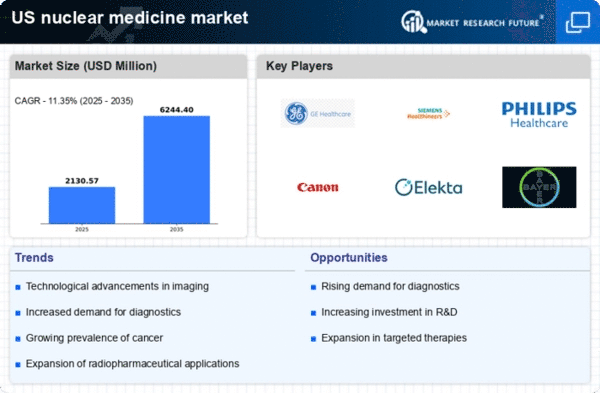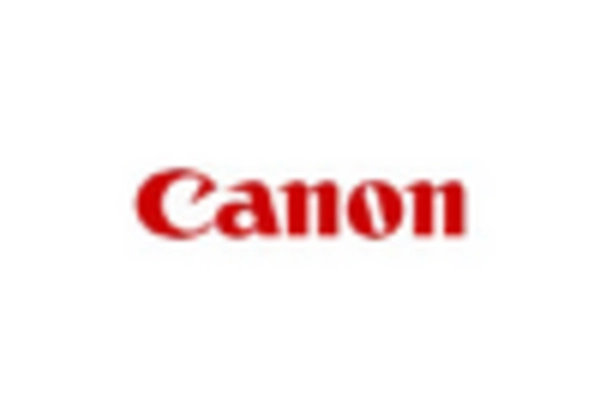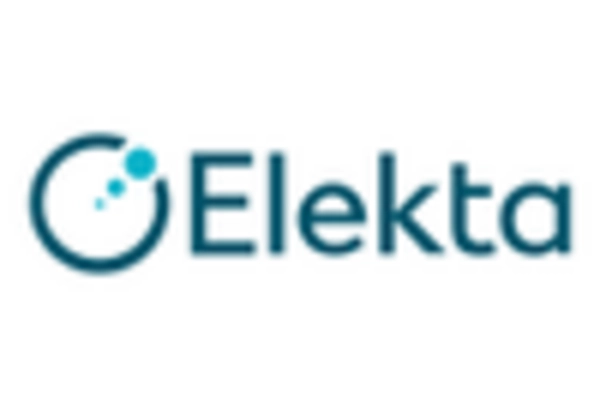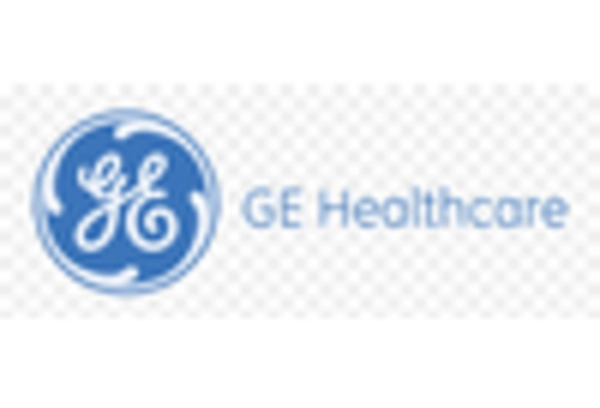Technological Innovations in Imaging
Technological advancements in imaging modalities, particularly in positron emission tomography (PET) and single-photon emission computed tomography (SPECT), are propelling the nuclear medicine market forward. Innovations such as hybrid imaging systems that combine PET with CT or MRI are enhancing diagnostic accuracy and patient care. These technologies allow for more precise localization of diseases, which is vital for effective treatment planning. The nuclear medicine market is witnessing a surge in demand for these advanced imaging techniques, as they provide critical insights into disease progression and treatment efficacy. Furthermore, the integration of artificial intelligence in imaging analysis is expected to streamline workflows and improve diagnostic capabilities. As a result, the nuclear medicine market is likely to experience robust growth, with an anticipated increase in market value reaching $10 billion by 2027.
Increasing Prevalence of Chronic Diseases
The rising incidence of chronic diseases such as cancer, cardiovascular disorders, and neurological conditions is a primary driver for the nuclear medicine market. As these diseases become more prevalent, the demand for advanced diagnostic and therapeutic solutions increases. Nuclear medicine offers unique imaging capabilities and targeted therapies that are essential for effective disease management. According to recent data, the nuclear medicine market is projected to grow at a CAGR of approximately 8% through 2027, driven by the need for innovative treatment options. This trend indicates a growing reliance on nuclear medicine technologies, which are crucial for early detection and personalized treatment plans in patients suffering from chronic illnesses. The nuclear medicine market is thus positioned to expand significantly as healthcare providers seek to enhance patient outcomes through advanced imaging and therapeutic modalities.
Enhanced Regulatory Frameworks and Support
The evolving regulatory frameworks surrounding nuclear medicine are fostering a more conducive environment for market growth. Regulatory bodies are increasingly recognizing the importance of nuclear medicine in modern healthcare, leading to streamlined approval processes for new radiopharmaceuticals and imaging technologies. This support is crucial for the nuclear medicine market, as it encourages innovation and expedites the availability of new treatments to patients. Additionally, government funding initiatives aimed at promoting research in nuclear medicine are further bolstering market expansion. The positive regulatory landscape is expected to enhance investor confidence, leading to increased funding for nuclear medicine projects. As a result, the nuclear medicine market is likely to benefit from a more robust pipeline of innovative products and services, ultimately improving patient care and treatment outcomes.
Growing Investment in Research and Development
Investment in research and development (R&D) within the nuclear medicine market is a significant driver of growth. Pharmaceutical companies and research institutions are increasingly focusing on developing novel radiopharmaceuticals and imaging agents. This trend is supported by government initiatives aimed at fostering innovation in healthcare technologies. The nuclear medicine market benefits from these investments, as they lead to the introduction of new products that enhance diagnostic and therapeutic options. For instance, the development of targeted radiotherapy agents is gaining traction, which could potentially improve treatment outcomes for cancer patients. The R&D expenditure in this sector is projected to increase by approximately 15% annually, reflecting the commitment to advancing nuclear medicine technologies and expanding their applications in clinical practice.
Aging Population and Increased Healthcare Demand
The aging population in the United States is a critical factor influencing the nuclear medicine market. As individuals age, the likelihood of developing chronic diseases rises, leading to an increased demand for diagnostic and therapeutic services. The nuclear medicine market is particularly well-positioned to address the needs of this demographic, as it offers effective solutions for disease detection and management. With projections indicating that by 2030, nearly 20% of the U.S. population will be over 65 years old, the demand for nuclear medicine services is expected to escalate. This demographic shift necessitates the expansion of healthcare services, including nuclear medicine, to ensure that older adults receive timely and effective care. Consequently, the nuclear medicine market is likely to experience sustained growth as healthcare systems adapt to meet the needs of an aging population.

















